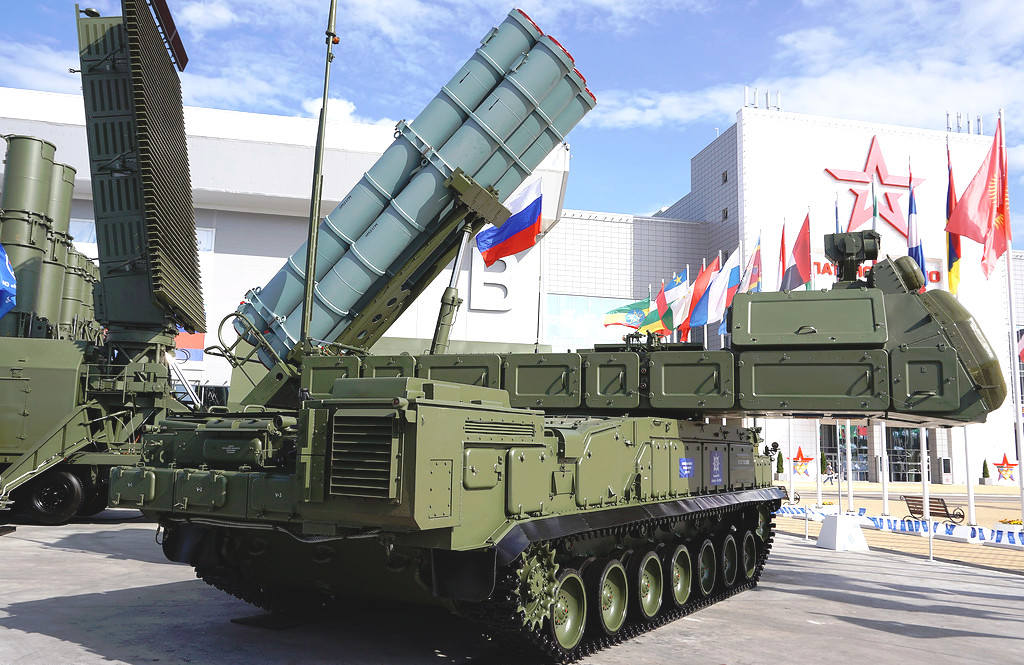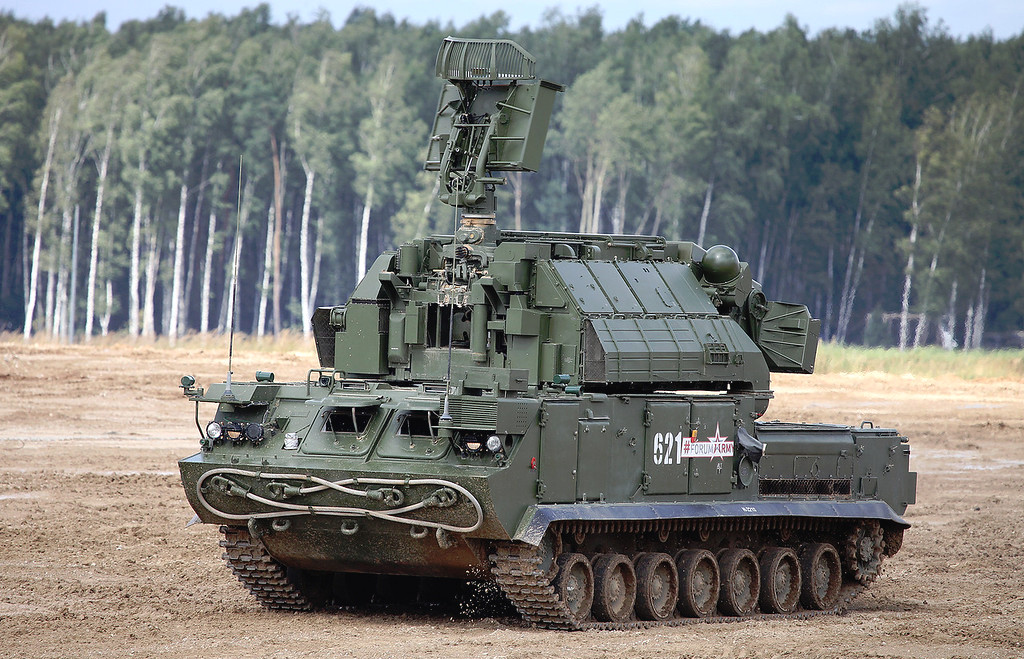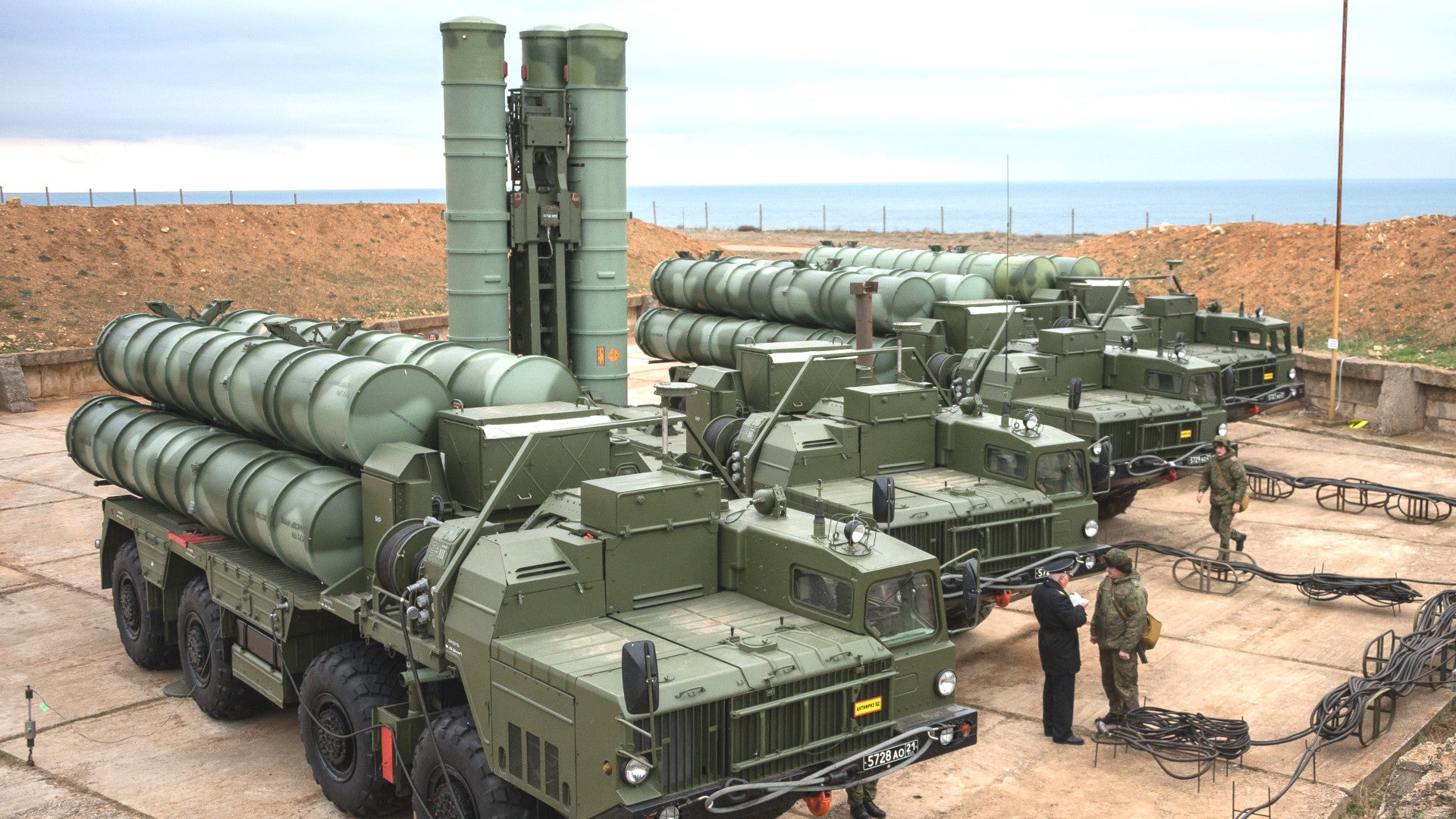Amid confusion and uncertainty about the future of the U.S. military’s presence in Iraq, Russia has unsurprisingly swooped in to re-up its offer to sell the country S-400 long-range surface-to-air missile systems, as well as other air defense weapons. The U.S. government’s recent decision to kill Qasem Soleimani, a top Iranian commander responsible for overseeing assistance to terrorist and militant groups overseas, has raised the potential for the Iraqi government to expel American forces, which would open up a vacuum that Russia and others are already looking to fill.
Russian state media outlet RIA Novosti reported this week that the Kremlin had offered S-400s to Iraq to “ensure the country’s sovereignty and reliable protection of airspace.” That phrasing is an obvious reference to the U.S. drone strike that killed Qasem Soleimani, which Iraq’s Prime Minister Adil Abdul Mahdi and other senior officials have since decried as a violation of the country’s sovereignty.
“Iraq is a partner of Russia in the field of military-technical cooperation,” Igor Korotchenko, a member of the Russian Defence Ministry’s public council and Russian media personality who’s regular style of dress has earned him the nickname “The Terminator,” told RIA Novosti. “The Russian Federation can supply the necessary funds to ensure the sovereignty of the country and reliable protection of airspace, including the supply of S-400 missiles and other components of the air defense system, such as Buk-M3, Tor-M2 and so on.”
Iraq has been in on-again-off-again negotiations with Russia over a purchase of S-400 systems since at least February 2018. In May 2019, Iraqi Ambassador to Russia Haidar Mansour Hadi implied to state-run media outlet TASS that an order for the air defense systems with close to being formalized. Four months later, he walked those comments back, saying the deal was “not on the table yet,” according to Iraqi Kurdish outlet Rudaw.

The Buk-M3 is a medium-range surface-to-air missile system, while the Tor-M2 is a short-to-medium range surface-to-air missile system. Both systems are road-mobile making them elusive when it comes to targeting. Iraq already operates Russian-made truck-mounted Pantsir-S1s, air defense systems that feature both short-range surface-to-air missiles and 30mm automatic cannons.


Whether or not Iraq is any more interested in the S-400s, or other Russian air defense systems, now than it was last year remains to be seen. It’s also worth noting that the Iraqi military has already acquired various other Russian-made combat aircraft, helicopters, armored vehicles, infantry weapons, and other military hardware over the years, as well. Iraqi authorities have purchased various systems from China, the Czech Republic, and South Korea, among others, too.
However, Russia’s latest offer comes at a time of particular crisis between Iraq and its principal source of military assistance, the United States. Though there are real questions about the legality of the vote, Shia Iraqi lawmakers, many of whom are publicly supportive of the country’s close relationship with Iran, forced a resolution through the country’s parliament this week calling for American forces to leave the country in response to the strike that killed Soleimani. Prime Minister Adil Abdul Mahdi, whose own authority is in question given his official resignation and current status as caretaker head of state, subsequently delivered this request to the U.S. government.
Yesterday, in a series of events that are still not fully clear, U.S. military officials in Iraq sent a memorandum that appeared to indicate American forces would begin withdrawing in the coming days and weeks. The Pentagon has now said that it is only repositioning troops within Iraq and that there are no plans, as of yet, to pull out completely. However, there are reports that Prime Minister Adil Abdul Mahdi is treating the letter he received as a formal notice. There are also now reports that the Arabic language version he got is different from the English one seen in pictures widely circulating on social media, further adding to the confusion.
At the same time, U.S. President Donald Trump has threatened to slap sanctions on Iraq if it follows through with its plans to eject American forces. This could including restrictions on the sale of weapons and other military hardware, as well as services, which could make it difficult for Iraq to operate and maintain various American-made systems. Especially complex assets, such as the country’s F-16IQ Viper fighter jets and M1 Abrams tanks, could become useless in very short order due to a lack of spare parts and contractor maintenance support.
In the meantime, U.S. forces in Iraq have already suspended activities related to the fight against ISIS terrorists, including training Iraqi security forces personnel. Regardless of the formal legal status of the Iraqi government’s request, it may be increasingly untenable for American troops to remain in the country if the powers that be in Baghdad take an increasingly hostile position to their presence. The NATO-led training mission in Iraq has also halted its activities in light of security concerns. Other countries, such as the United Kingdom, are taking additional steps to safeguard the military and diplomatic personnel in Iraq.
All of this presents openings for Russia to offer to fill the emerging vacuum in security assistance to the Iraqi government. The Kremlin isn’t the only country taking note, either. Yesterday, Prime Minister Adil Abdul Mahdi met with the Chinese Ambassador to Iraq, who also said that Beijing was ready to play a role in assisting Iraq’s security forces.
Iraqi S-400s, especially, together with any increasingly adversarial relationship with the United States, could certainly present a significant potential threat to U.S. military aircraft, or those belonging to its allies and partners, continuing to operate over the country to conduct strikes against ISIS or any other targets. Russian S-400s, as well as its other air defenses, in Western Syria have similarly long presented a barrier of sorts to U.S.-led coalition air operations against ISIS and other terrorist groups in that part of the country. Using stealth aircraft and stand-off weapons could mitigate the threat, and there is always the option to directly target any hostile air defense sites during a mission, but their very presence changes the risk conclusion and might make certain operations more difficult, if not impossible, depending on the exact circumstances.
All told, whether Iraq does or does not respond favorably to Russia’s latest offer to sell it the S-400, as well as other air defense systems, the Kremlin, among others, is certain to try to exploit the current crisis between the United States and Iraq to try to expand its influence in Baghdad at the expense of the United States.
Contact the author: joe@thedrive.com
